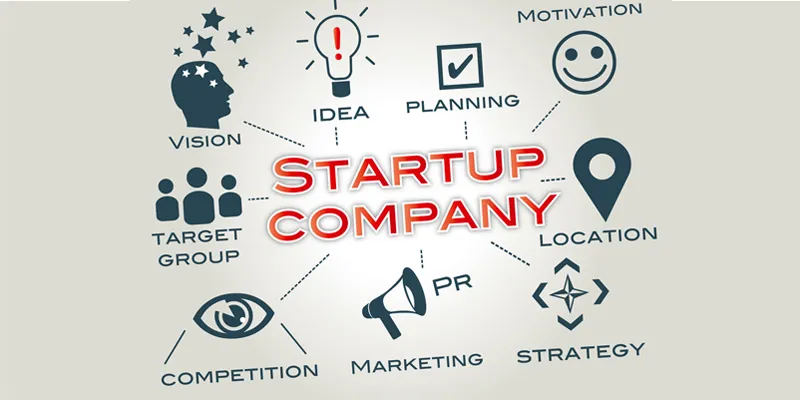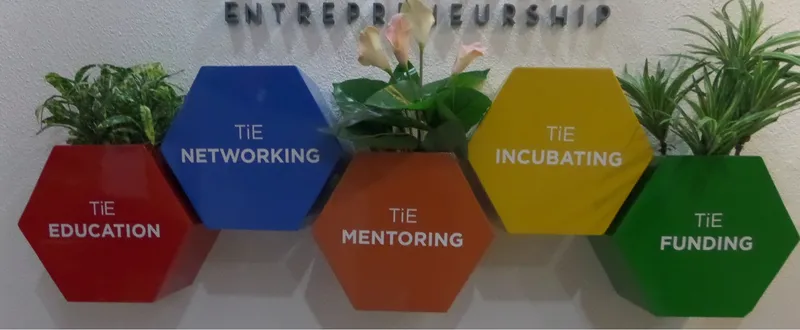Idea validation: 20 startup tips from the TiE Bangalore Mentor Clinic
What are the different stages of validation in a startup founder’s journey? How do they get to the scale stage and cultivate industry contacts? What metrics do they need to understand while they pivot? How should they choose between product and service, between B2B and B2C offerings? Is entrepreneurship a ‘full-time’ journey? And how should all these questions be answered without getting stuck in ‘analysis paralaysis?’

Three dozen startups discussed a wide range of entrepreneurship issues with a panel of four experts at a recent TiE Bangalore Mentor Clinic: Parag Dhol, MD of Inventus Capital; Suryanarayanan A., Head of Incubation Services at BHive Workspace; Mukul Agrawal, Co-founder and CEO of eTutorWorld; and Suryaprakash Konanuru, CTO, IdeaSpring Capital.
The founders came from a wide range of sectors: telecom, travel, healthcare, finance, media, fashion, games, furniture, and jewellery. Here are my Top 20 takeaways from the discussion which I facilitated; see also YourStory’s earlier coverage of TiE Bangalore’s fintech showcase, StartEdu initiative, SMAC Day, IoTNext startup showcase, and pitch tips for founders.
Start off with a clear niche
Instead of offering something for the whole world, it may be easier to start with one customer segment and then grow from there. For example, while it may be tempting to address bakery needs of the mass market, it may actually be easier to begin with functional foods, eg. diabetics who have specific food requirements that they will stick to for a long time, and not in a fickle manner. Start small and keep it simple; work on future phases later.
Identify the problem
Interestingly, when founders are asked to describe their offering, they come up with a list of features. Instead, they should be explaining what problems they are addressing and solving. The first step of validation is at the problem level, followed by customer and product. Many founders have apparent fixes looking for problems, rather than approaching it the other way round. Is the problem real, or is it only in your head? Who else thinks the problem exists?
Find the paying customer
Too many startups think they must begin with finding investors to fund product development. But more legwork should be done in assessing the market, interviewing potential customers, finding price points in the target domain and related sectors, and identifying intent to pay.
Go beyond friends and family for validation
Ironically, friends and family may not be the best people to validate your idea – they tend to support whatever you do, and may not give you direct feedback that may discourage you if your idea is infeasible.
Entrepreneurship is different from other employment
Entrepreneurship is about passion - it’s not just another job. The passion will drive the founder to learn more about the domain, identify problems to solve, and cultivate the ecosystem to solve it. If the relentless passion is missing, it may be easier to be a regular employee of a company.

Nothing communicates like a demo
An MVP, demo, mockup, video or dummy screenshot goes a long way in convincing customers of what your value proposition is for a product or service. Mere descriptions may not get the message across, especially if the product is relatively new and unfamiliar. It is important to crystallise such potential customer connects.
Minimum viable product
Don’t agonise over getting the perfect product out right at the beginning; it should be at least 80 percent good enough for the pre-launch stages. It should possess must-have features to solve the problem; the nice-to-have features can come later.
Product or service?
The lines between product and service can blur in some cases. In these situations, the startup should have separate SBUs for product and service, but not try to do both at the same time with the same team. These distinctions can arise at multiple stages of a company’s growth, and lead to multiple types of business models.
B2C or B2B?
It may be tempting to be seduced by the successes of consumer internet startups, with their stories of scale and growth. Sometimes, a B2B approach may reveal new useful insights into feasible customer segments, effective channels, and long-term partnerships. Be sure to assess both approaches – and maybe even plan for separate strategies at later stages.
Understand the world of the investor
Investors are of different types, and it is important for startups to spend some time researching their varying priorities and pressures. For example, angels may be useful at the pre-product stages, but VCs may be interested only when there is some monetisation beginning to happen.
Hires and interns
Write down clear job descriptions of tasks and roles before you hire someone; many founders do not practise this with precision. Interns are a good option as well. But hiring takes time, energy and effort, right from interviews to training, and these must be factored in. Many founders do not pay enough attention to building the right culture in their startups from Day One.
Ethics
Rule of law, ethics and accountability should be part of the startup DNA. For example, in marketplace models, it is important to be clear about whose interests come first – the end customer or business service providers.

Distinguish between user, customer and consumer
Not all users are customers (eg. those who use Facebook and Twitter), and the person who is paying for your product or service may actually be giving it to someone else to use. These seemingly simple distinctions can actually trip up many a business plan in the early stages.
Learn from super users
Customers, especially early adopters and outliers, can be your best source of learning. In the race to keep acquiring customers, founders tend to treat customers as just numbers. They should be regarded as sources of deep insights and even partners in co-creation. Missionary zeal should not be a substitute for customer connect.
Ask and you shall receive
Thanks to the internet, social media and proliferation of events, it is easier than ever to reach out to potential mentors and contacts. Many of them would be quite happy to assist aspiring startups formally or informally – it is up to the founder to take the initiative and build rapport. YourStory has published a wide range of success stories and even failed ventures; the founders are good sources of first-hand insights.
Online resources
Many online tools and checklists are available for startups to test and explore their ideas. These include Lean Startup, Business Model Canvas, Business Plan Archive, Consumer Trend Canvas, Design Thinking, and the YourStory Changemaker Story Canvas. They serve as useful tools to structure one’s thinking, segment the business space, prioritise activities, brainstorm collectively, and assess growth feasibility.
The MBA myth
Many founders (especially techies) tend to believe that without an MBA you cannot launch a startup. Actually, MBAs tend to over-analyse things, the panellists jokingly explained. Outsiders have less baggage and can pick up these business insights later. MBAs may be useful in later scale stages only.
Location, timing, context
Sometimes the local market may not yet be ready for your product, and the opportunity may be elsewhere. You may be a bit too early for the market with your idea. Or even worse, government regulations may not be right for introducing your disruptive ideas. Be sure to assess the feasibility of location, timing and context before you step too far into the game. A good example is the ongoing tussle between car-sharing apps and the government on the legality of car-pooling.
So what if you are an introvert?
Techie founders in particular may be introverted in nature; however this should not come in the way of picking up business skills. There are many online courses one can take on topics like sales and accounting, or from business schools. Another option is to find a business-oriented co-founder who is better at media activities and networking.
Do your homework!
None of the above is really rocket science – but why is it that startups keep bringing these issues up again and again in every forum? Because founders don’t do their homework, the panellists remarked – many founders think they have come up with unique products, when a simple Google search will reveal that there are dozens of other similar products and problems!
TiE Bangalore is organising more such interactive sessions to connect aspiring entrepreneurs with domain experts and successful businesses. A lot of useful networking happens among entrepreneurs as well at these sessions, leading to mutual bonding, validation and reinforcement of ideas - and sometimes even opportunities to pool resources together. We look forward to future mentor clinics on team building, company culture, legal contracts and fundraising!








